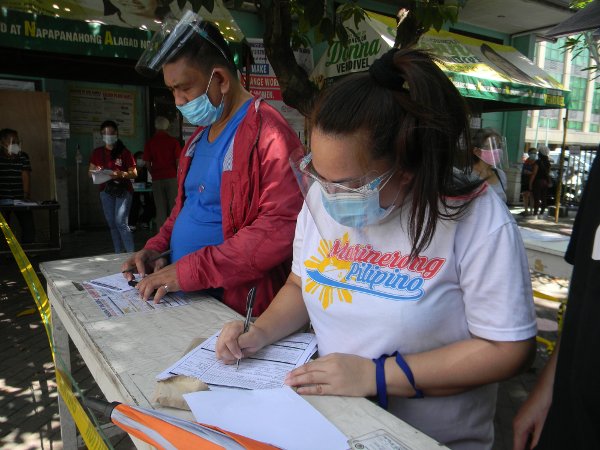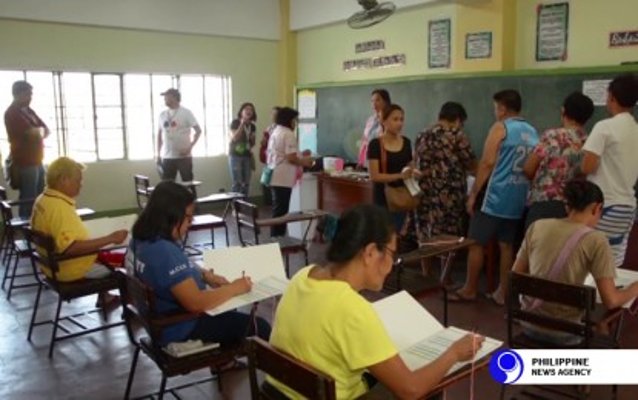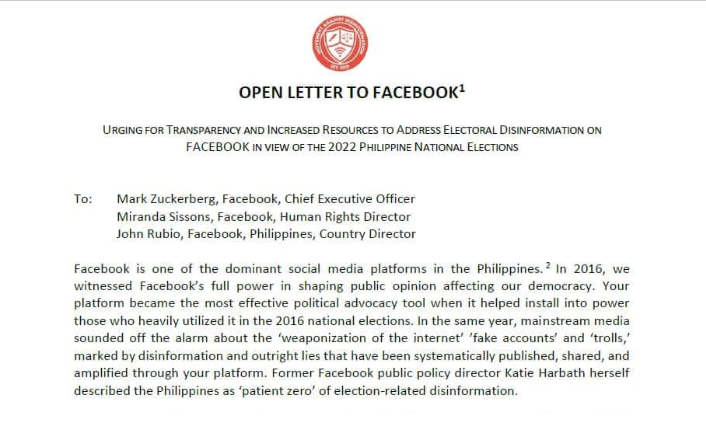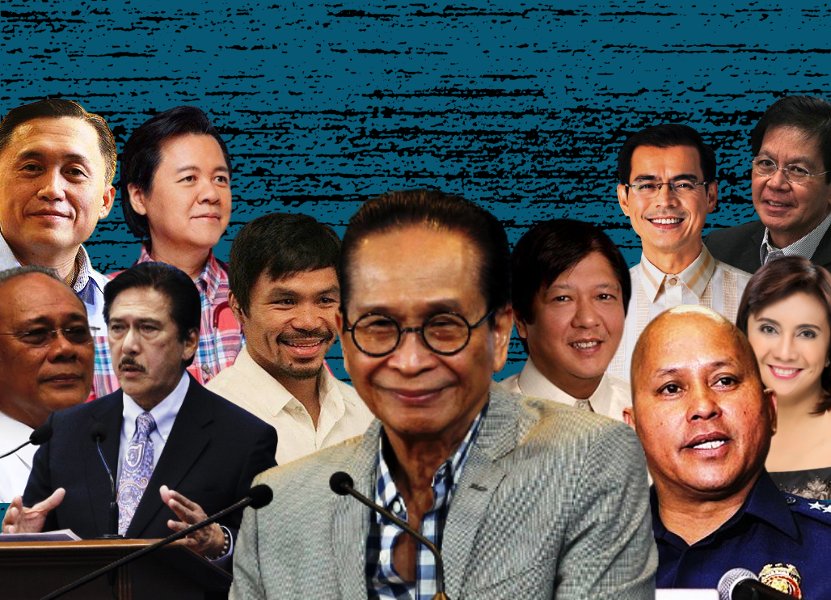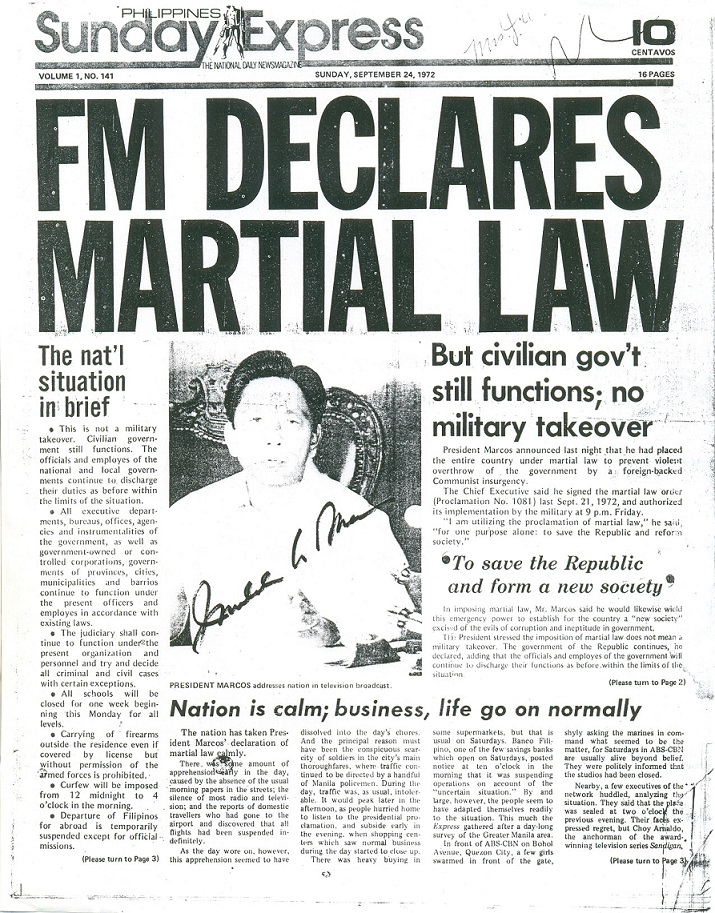The Commission on Elections (Comelec) en banc unanimously granted an extension of voter registration for 16 days between Oct. 11 and Oct. 30 to allow more people to participate in the May 2022 elections amid calls from public interest groups and Congress.
Registration started on Jan. 20 last year but was suspended several times because of community lockdowns due to the coronavirus disease 2019 (COVID-19) pandemic.
“Most, if not all, of the field officials were initially against the idea of … voter registration extension,” said Comelec spokesperson James Jimenez in a Sept. 29 press briefing.
“But in the course of the discussion … the consensus that was created was that we need to do this for the benefit of the people who are asking for it. The public clamor, again, is really very loud,” he added.
What would this mean for the upcoming elections? Here are four things you need to know:
1. What does this extension entail?
The cutoff date for voter registration, originally Sept. 30, was extended to Oct. 30 –- Mondays to Fridays only beginning Oct. 11, and one Saturday (Oct. 30) -– from 8 a.m. to 5 p.m. Comelec said all registration services will be offered, including new registrants, transfers, and reactivations.
There will be no registration from Oct. 1 to 8, the period set for the filing of certificates of candidacy (COCs), which will be held at Garden Tent, Hotel Sofitel in Pasay City.
Registration for overseas voters was extended for two weeks, from Oct. 1 to 14. Because the filing of COCs is not an issue to overseas Filipinos, Jimenez said the extension for this group will start immediately.
The 16-day extension may yet be extended further should President Rodrigo Duterte sign into law a pending bill in Congress providing for a full-month extension.
House Bill 10261, passed on final reading on Sept. 27, seeks to extend the registration deadline for “30 days” following its enactment. Its Senate counterpart, Senate Bill (SB) 2408, which specified Oct. 31 as the new deadline, was approved on the same day.
About the possibility of further extending the registration period by legislation, Jimenez said Comelec will “deal with that when it happens” since the current extension is by virtue of a Comelec resolution which will be “in effect now.”
2. How many more Filipinos are eligible to register and be able to vote in the upcoming elections?
There are 73.38 million eligible voters for the 2022 national elections, the Comelec stated, citing data from the Philippine Statistics Authority, during a public hearing by the Senate Committee on Electoral Reforms and People’s Participation on Feb. 18.
Of this number, at least 63.36 million Fillipinos, or approximately 86%, are already registered as of Sept. 11, Comelec Chairman Sheriff Abas said in a Sept. 29 interview on CNN Philippines.
Comelec data obtained by VERA Files Fact Check on Oct. 1 showed that 6.43 million Filipinos registered from Jan. 4 to Sept. 25. Of these, 3.41 million are first-time registrants and 3.01 million reactivations and transferees, including 21,834 transfers from the overseas absentee voting list.
In extending the deadline of registration, about 10 million more Filipinos are eligible voters but have not registered. However, Jimenez said Comelec is “not going for any hard target.”
“The extension really will just make the registration process available to those that we expect will still be eager to register during this extended period,” he said in a Sept. 29 interview. “Conservative estimates place it a little under 300,000,” he added.
When voter registration resumed in early September following a suspension due to a community lockdown, registrants lined up for hours starting as early as 2 a.m. in Comelec offices and satellite registration sites such as in shopping malls to beat the Sept. 30 deadline.
In an earlier forum, Eric Alvia, secretary-general of the National Citizens Movement for Free Elections (NAMFREL), said extending the registration deadline was necessary, noting that “in the past few months, we’ve lost a number of voting registration days through the pandemic and also because of the series of lockdowns.”
The explanatory note of the Senate measure also pointed out that Comelec suspended the registration at least three times during the COVID-19 pandemic, which removed five and a half months, or “approximately 28.3% of the entire registration period.”
“Given the extraordinary circumstances of the pandemic, it is necessary to extend the voter registration, in order to give unregistered Filipinos of voting age ample time to register, and eventually exercise their constitutional right to vote and avoid disenfranchisement of [a] large number of qualified voters,” it added.
3. Has this been done before?
The Legal Network for Truthful Elections (LENTE), a network of lawyers and paralegals working for “truthful elections” and “meaningful electoral participation,” told VERA Files Fact Check in an email that “there has not been such a case where both chambers (of Congress) filed a bill to extend voter registration.”
Ahead of the 2010 elections, however, the Supreme Court (SC) declared as null and voidComelec Resolution No. 8585 that shortened the period of voter registration and set the last day to Oct. 31, 2009, instead of Dec. 15, as previously announced.
Former Kabataan Party-list representative Raymond Palatino, who filed the petition in the SC, contended the “potential disenfranchisement of millions of Filipino voters” with the shortened voter registration period.
Eventually, the SC then ruled to reopen registration until Jan. 9, 2010, invoking Section 8 of Republic Act No. 8189 that allows voter registration 120 days before a regular election and 90 days before a special election.
LENTE cited other attempts to extend the registration over the years:
While the registration was extended until Oct. 31 in 2013 and 2016, LENTE noted that “this was not due to any legislative act but rather due to the push of concerned groups[,] such as Kabataan Partylist[,] and Comelec’s own volition.”
“Comparing this with the issue today, we can see that the 120-day prohibitive period has not set in. And so requests for an extension to voter registration today should be allowed, following the Supreme Court decision that has become the law of the land,” LENTE said.
The difference, on the other hand, is that the pandemic is “an unusual precedent.”
4. How will this extension affect the preparations of Comelec?
Jimenez earlier stated that by considering voter registration at a later date, the Comelec is “effectively playing with fire,” taking into account major logistical problems and the fact that some Comelec field officials have gotten COVID-19 “due to constant exposure,” including six recent infections.
“The biggest logistical problem, of course, is that there’s a filing period for COCs in the middle of it, so that’s the first thing that we’re going to have to discuss,” he said at the time, adding that the filing was fixed between Oct. 1 and 8. Thus, the extension was set to begin two days after the last day of the filing of the COCs.
NAMFREL’s Alvia said an extension will affect the preparation of the voters’ list and the project of precincts, where “information related to the location of the voting precincts are going to be contained.”
This information, he added, needs to be “loaded [in]to the vote counting machine and the various computer servers that Comelec will be using for the automated election systems.”
On how the extension would affect Comelec’s activities leading up to the 2022 polls, Jimenez said, “as with any planning, there is really slack time … there’s really an allowance,” hence, the Comelec will “dip into that slack time.” This means it will “still … do the same things but in a much shorter period.”
Sources
Commission on Elections, #VoterRegistration2021: Updates, Sept. 24, 2021
Commission on Elections, #VoterRegistration2021: Updates, Sept. 29, 2021
Commission on Elections, Resolution No. 10635, Jan. 10, 2020
House of Representatives, H.B. 10261
Senate of the Philippines, Senate Bill No. 2408
Senate of the Philippines, Committee on Electoral Reforms and People’s Participation, Feb. 18, 2021
Personal communication, Legal Network for Truthful Elections, Sept. 29, 2021
Supreme Court of the Philippines, G.R. No. 189868, Dec. 15, 2009
CNN Philippines, Comelec Chairman Sheriff Abas & Spokesperson James Jimenez | The Source, Sept. 29, 2021
ONE News, #BilangPilipino2022, Sept. 29, 2021
Commission on Elections, Republic Act No. 8189
(Guided by the code of principles of the International Fact-Checking Network at Poynter, VERA Files tracks the false claims, flip-flops, misleading statements of public officials and figures, and debunks them with factual evidence. Find out more about this initiative and our methodology.)
Have you seen any dubious claims, photos, memes, or online posts that you want us to verify? Send us a message here or here.
